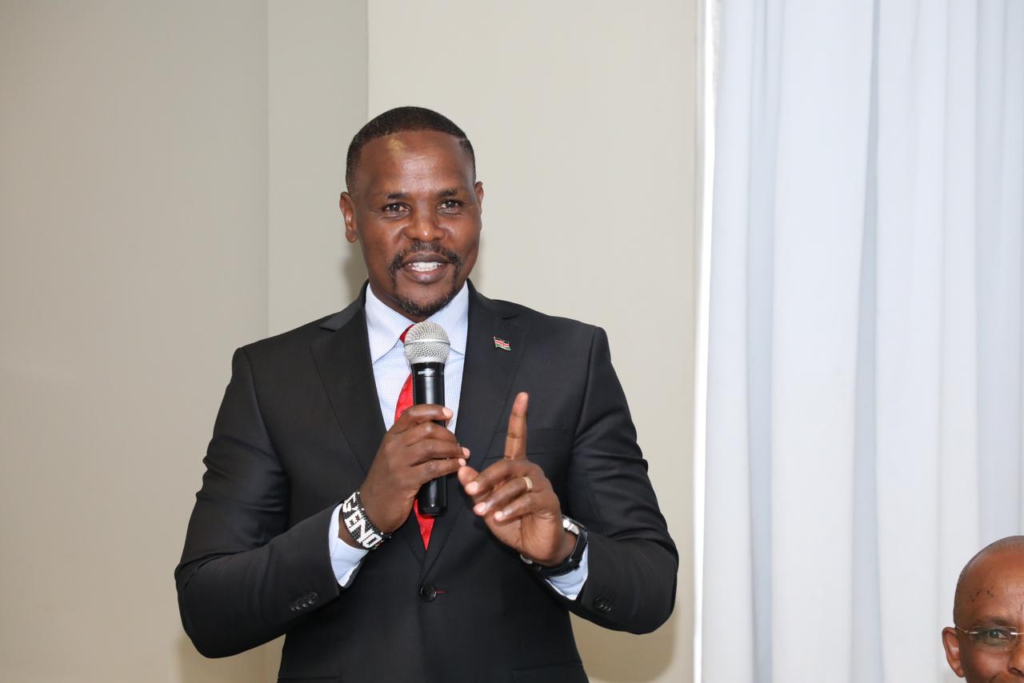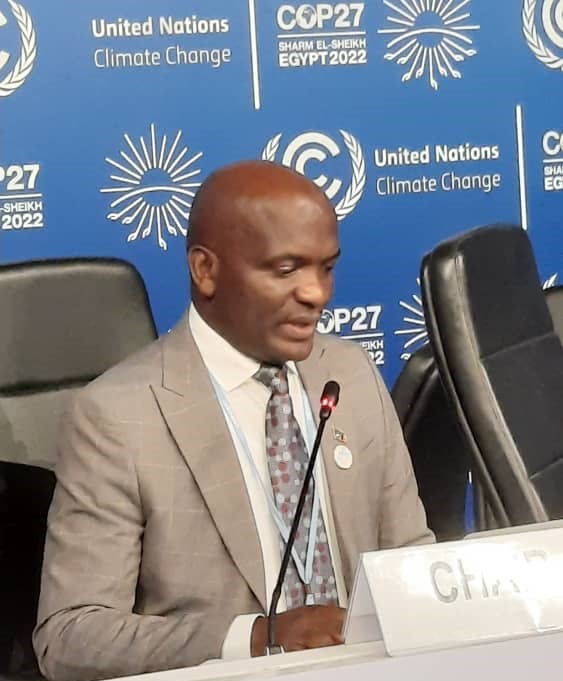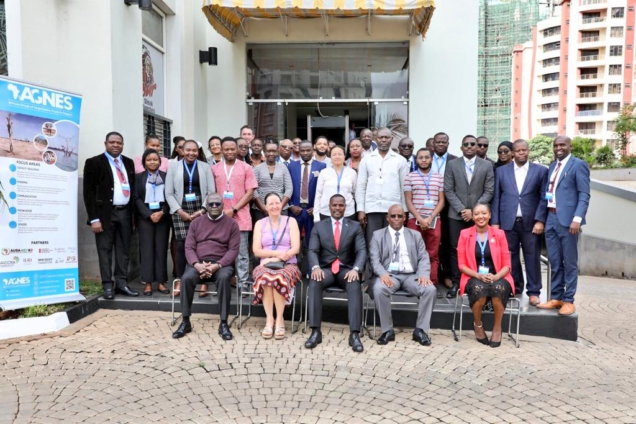The African Group of Negotiators Expert Support (AGNES) is making efforts to address Africa’s climate science knowledge gaps in relation to the continent’s contribution to the Intergovernmental Panel on Climate Change (IPCC).
AGNES is a continental think tank providing technical support to the AGN to advance common Africa position on climate change under the UN Framework Convention on Climate Change (UNFCCC).
AGN Chair, Ephraim Mwepya Shitima says Africa’s technical negotiators have been yearning for scientific-based evidence to be informed from an African perspective.
“The IPCC is the designated scientific voice on climate science; it is therefore critical for our continent, which contributes very little and yet suffers the most, to be well represented in this body of science,” he said.
“As AGN, we support every effort that African institutions such as AGNES, are making to improve the continent’s participation in the climate science discourse. This is particularly important for technical negotiators who have been yearning for scientific-based evidence to be informed from an African perspective.”
In an effort to close the identified science knowledge gap, AGNES, in collaboration with the Kenya Meteorological Department, Kenya’s Ministry of Environment and Forestry (MEF), the African Union Development Agency (AUDA-NEPAD) and other scientists/experts from Africa are convening in Nairobi to discuss important climate science knowledge gaps that are unique to the continent.
The meeting is seen as an opportunity for African scientists and experts to identify priority areas critical for the continent, and suggest inclusion during the Seventh Assessment Report (AR7) outline scoping plenary.
The main aim is to stimulate and catalyse research activities geared towards addressing the identified knowledge gaps and provide an opportunity for greater involvement of African scholars/scientists.

Officially opening the meeting in Nairobi, Principal Secretary at the Kenyan State Department of Environment and Climate Change, Ing. Festus Ng’eno emphasised the importance of ensuring that Africa’s voices are loud enough in the climate science discourse considering the continent’s vulnerability to negative impacts of climate change.
“The products in the 6th assessment cycle show an improvement in the representation of African issues, however, there is still a major room for improvement,” he said.
“It is alarming that only 11% of authors of the assessment report are from Africa despite Africa being one of the world’s most vulnerable continents to the impacts of climate change.
"It is crucial to ensure that African voices are well-represented when finding solutions, crucial also is the inclusion of the role of indigenous and local knowledge systems as well as adequate gender representation.”
Africa’s capacity to cope
While climate change is a global problem, Africa suffers its consequences disproportionately due to its limited capacity to cope. To make the matters worse, the continent contributes less than 4% to global warming emissions.
It is for this reason that there is a clarion call for Africa to be well supported in terms of adaptation finance as well as ensuring the continent’s voices are loud enough in the climate science discourse and on the negotiation table.
Experts across Africa have identified three main barriers to the continent’s scientists and scholars’ active participation and representation in the IPCC.
Firstly, there is a limited publication by African scholars/scientists on African climate-related issues. High publishing costs, it is acknowledged, continue to keep African scientists/ scholars out of top science journals.
Secondly, there is a noted disjoint or weak link between the IPCC National Focal Points and the universities and/or research organisations.
Thirdly, serving as a contributing author is not compensated financially, and this is said to be a deterrent to the participation of scientists from countries that continue to work with limited resources.
Some of the solutions that the meeting aims to bring on board include having a common African position on the gaps identified, creation of an awareness and outreach programme to enhance National Focal Points’ link with policymakers, universities/ research institutions and putting in place a support system for African scientists to publish in peer-reviewed journals.

AGNES Team Lead and convener of the meeting, Dr George Wamukoya, noted the urgent need to fill the identified science knowledge gaps to improve the representation of African issues in the IPCC assessments.
“Undoubtedly, there is an urgent need to fill the existing gaps in knowledge as well as anticipate the direction of science and research in the field of climate change and reflect this in published papers,” he notes.
“This will improve the representation of African issues in the IPCC assessments. The question is, how does Africa plan to contribute towards addressing these knowledge gaps? It is my hope that this convening will get the most strategic solutions to ensure that representation is timely, accurate and inclusive.”
Meanwhile, African Climate Research Fellow, Professor Chukwuemeka Diji is elated that such a meeting was taking place at a time when the IPCC Sixth Assessment report clearly indicates how Africa’s ability to adapt was being pushed to its limits.
“This meeting has become very important and expedient because the AR6 report shows that Africa’s ability to adapt is being pushed to its limits, calling for urgent action to create awareness and knowledge to urgently reverse the situation and reverse the dangerous direction.
"This week’s convening will set the groundwork to highlight the exposure and vulnerability of Africa to climate change and its multi–dimensional, socio–economic and political dimensions.
"Additionally, we also need to identify, scale – up and evaluate the current and future benefits of Adaptation to Africa while also including the voices of African scientists/ scholars.”
Latest Stories
-
Ken Ofori-Atta’s lawyers are dictating the pace – Baffour Awuah tells OSP
21 minutes -
Environmental Protection Authority readies to ban plastic in Ghana
38 minutes -
Don’t rely on Ken Ofori-Atta to incriminate himself – Manhyia South MP tells OSP
40 minutes -
These Americans are done with Trump. So they’re leaving America
1 hour -
Emirates and Air China ink MoU to explore enhanced partnership
1 hour -
OSP flew out to meet Samuel Mahama; same approach should apply to Ken Ofori-Atta – Baffour Awuah
2 hours -
‘Ken Ofori-Atta is not a fugitive’ – Prof Ansa-Asare
2 hours -
Suicide bomber killed in Uganda on Christian holy day, army says
3 hours -
Harvey Weinstein used Hollywood clout to abuse women, prosecutor tells jury
3 hours -
Sean ‘Diddy’ Combs paid hotel security officer to hand over video, jury hears
3 hours -
Nigeria’s defence chief proposes fencing borders to curb insecurity
4 hours -
Local firms drive new growth phase in Nigeria’s oil sector
4 hours -
Mali suspends artisanal gold mining activities due to weather conditions
4 hours -
UK temporarily spared from Trump’s 50% metal tariffs
4 hours -
South African court dismisses opposition party’s fuel levy challenge
4 hours

